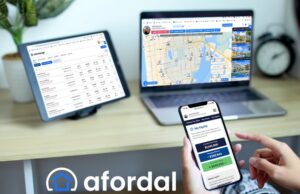
There’s no such thing as passive income. Not really.
For those unfamiliar with the term, passive income is money you make by owning something of value and letting that value accrue. In other words, investing. What differentiates it from active income is that active income is money you make by working for it, while passive income ostensibly requires no work. Right?
Wrong.
The truth is, whether it be stocks, licensing, or real estate, there’s no way to make money without doing at least some work. From gaining whatever asset it is that generates your income to maintaining it, even the most hands-off money-makers still require you to be hands-on from time to time.
That said, of all the investments you can make, real estate is the one that’s most like having a second full-time job. With a little patience and sacrifice early on, though, it’s a full-time job that can ultimately replace your current job entirely, making you more money with the added benefit of allowing you to call the shots.
While stocks and licensing can be complex and intimidating, real estate investment is surprisingly accessible. All but the most unfortunate among us will likely rent a piece of property at some point in our lives. And if you can rent a property, you can own one. In fact, if you own the home you live in now, you’ve already started investing in real estate without even realizing it.
Owning is the first step to generating income from real estate. Before you can do anything else with a property, you have to own it. And even if you don’t do anything else with it, owning a home goes a long way towards making you more secure and independent. Simply put, it gives you a backup plan. No matter what else happens, if you own a home then you’ll always have a place to lay your head and an asset that you can sell.
If you don’t currently own a home, meanwhile, or if you’re still in the market for one, it’s important to be mindful of what you can afford. Use a mortgage estimator to figure out where you stand. Sometimes you have to start small, but once you have a property to call your own, your financial options broaden greatly.
One such option is to rent out your property. Whether you rent out a single bedroom or turn an entire house into an apartment building, renting can add thousands of dollars to your income annually. Costs include insurance and maintenance, and of course there’s always the pitfall of an empty apartment generating zero revenue. But ultimately, housing is something people will always need, and renting is a great way to make money providing it.
Another option that’s become increasingly popular in recent years is flipping, wherein you buy a piece of real estate at low cost, then spend money adding value to it through repairs and renovations, before finally selling it for more than what you paid for it.
The difference between flipping and renting is essentially a matter of time, not money. Flipping requires you to sink a lot of energy and money into a property over a smaller period of time for a quicker turnaround, while renting requires less drastic renovations and delivers smaller payouts, but both add up over a longer period of time.
With such versatility, real estate offers a lot of promise to investors at all levels. Clearly, for those who don’t mind taking a more active role in their “passive” income, it can pay off in a very big way.














